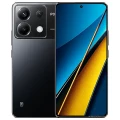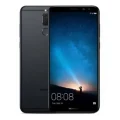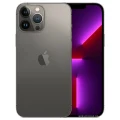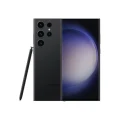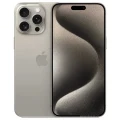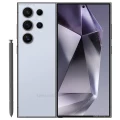- Awesome page
- Latest Mobile
- Smartphones
- Xiaomi Mi 11 Pro
Xiaomi Mi 11 Pro
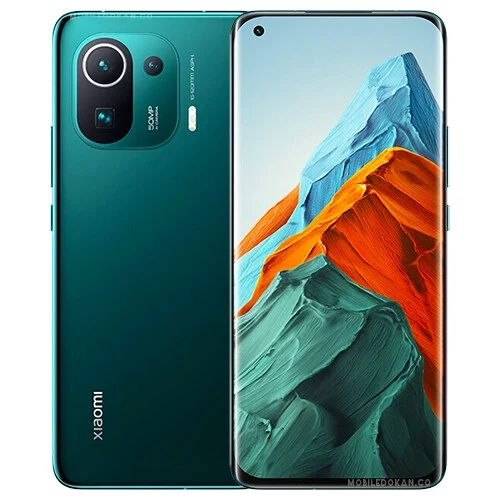

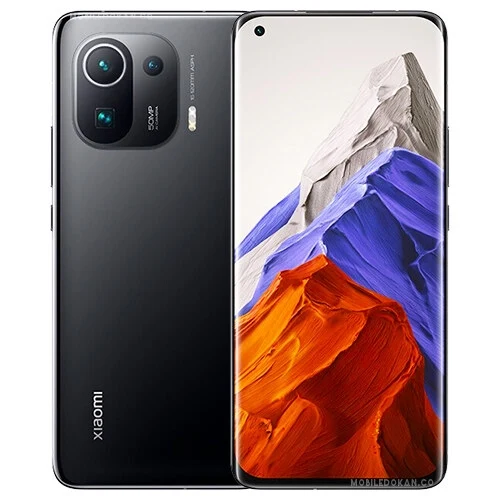

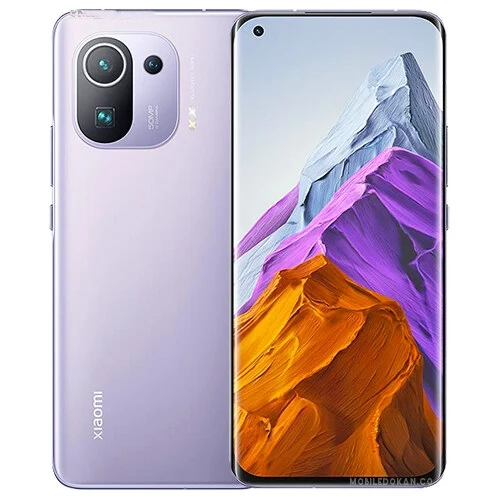
Xiaomi Mi 11 Pro Price in Bangladesh
The most recent Xiaomi Mi 11 Pro price information for Bangladesh is 2024. View the complete specifications of the Mi 11 Pro, including features, reviews, comparisons, official and unofficial prices, expedited and mobile BD prices, and the product’s overall best feature ratings. It is anticipated that the Mi 11 Pro would launch in this nation in April 2021.
Specifications
General
| Model | Xiaomi Mi 11 Pro |
| Announced | 02-04-2019 |
| Released | 02-04-2019 |
| Status | Available |
| Official price | 70000 |
Design
| Dimensions | 164.3 x 74.6 x 8.5 mm (6.47 x 2.94 x 0.33 in) |
| Weight | 208 g (7.34 oz) |
| Colors |
Black, Green, Purple |
Network
| Technology | GSM / HSPA / LTE / 5G |
| 2G Network |
GSM 850 / 900 / 1800 / 1900 - SIM 1 & SIM 2 |
| 3G Network | HSDPA 850 / 900 / 1700(AWS) / 1900 / 2100 |
| 4G Network | 1, 2, 3, 4, 5, 7, 8, 12, 17, 18, 19, 20, 26, 28, 34, 38, 39, 40, 41, 42 - China |
| 5G Network | 1, 3, 28, 41, 77, 78, 79 SA/NSA - China |
| GPRS <strong>GPRS</strong> (General Packet Radio Service) is a packet oriented mobile data service on the 2G and 3G cellular communication system's global system for mobile communications (GSM), Generally, GPRS is used for the purpose of wireless data transfer, such as sharing pictures and videos or browsing the Internet via a mobile phone connection. | |
| EDGE <strong>EDGE</strong> (Enhanced Data GSM Environment) is a wireless network technology generally considered the next step in the 2G network offers data transfer rates up to four times faster than ordinary GSM networks, Generally, EDGE is used for the purpose of wireless data transfer, such as sharing pictures and videos or browsing the Internet via a mobile phone connection. | |
| Speed | HSPA 42.2/5.76 Mbps, LTE-A, 5G |
Display
| Display Type <strong>Display Technology => </strong> A number of display technologies and types used in mobile phones => TFT (Thin Film Transistor), IPS (In-Place Switching), OLED (Organic Light Emitting Diode), AMOLED (Active-Matrix Organic Light-Emitting Diode), Super AMOLED (an even advanced version of AMOLED), Resistive Touchscreen (Resistive touchscreens contain two layer of conductive material with a very small gap between them which acts as a resistance), Capacitive Touchsceen (Capacitive touchscreen technology consists of a layer of glass coated with a transparent conductor) | AMOLED capacitive touchscreen, 1B colors |
| Size | 6.81 inches, 112.0 cm2 (~91.4% screen-to-body ratio) |
| Resolution | 1440 x 3200 pixels, 20:9 ratio (~515 ppi density) |
| Features |
Dolby Vision 120Hz, HDR10+, Dolby Vision, 1500 nits (peak) |
Camera
Main camera
| Camera Setup | Quad |
| Primary <strong>Camera</strong> is able to capture photographs and usually videos, The most important characteristics of a camera are the resolution (measured in megapixels), lens focus type (fixed or automatic), higher megapixel cameras are known to capture higher quality photos, but not always a good measurement of the photos quality. |
50 MP, f/2.0, 24mm (wide), 1/1.12&amp;amp;quot;, 1.4µm, Dual Pixel PDAF, OIS 8 MP, 120mm (periscope telephoto), PDAF, OIS, 5x optical zoom 13 MP, 16mm, 123˚ (ultrawide) |
| Features |
Dual-LED dual-tone flash, HDR, panorama HDR |
| Video | 8K, 4K, 1080p, gyro-EIS, HDR10+ rec. 1080p@30fps, 720p@120fps, gyro-EIS |
Selfie camera
| Camera Setup | Single |
| Primary <strong>Camera</strong> is able to capture photographs and usually videos, The most important characteristics of a camera are the resolution (measured in megapixels), lens focus type (fixed or automatic), higher megapixel cameras are known to capture higher quality photos, but not always a good measurement of the photos quality. |
16 MP f/2.4, Wide Angle, Primary Camera |
| Features |
Wide Angle |
| Video | 1920x1080, 1280x720 |
Hardware
| Chipset <strong>Chipset</strong> is a group of integrated circuits designed to perform one or a more dedicated functions, often with real time computing constraints, Popular smartphones are equipped with more advanced embedded chipsets that can do many different tasks depending on their programming. | Qualcomm SM8350 Snapdragon 888 (5 nm) |
| CPU <strong>CPU</strong> (Central Processing Unit) mostly known as processors, CPU processes instructions in order to carry out certain functions that make your device operate properly. Processors are often described as the brain of computers, smartphones and tablets, Smartphones and tablets rely on processors to carry out their every task, Processors are an incredibly important factor in selecting any type of computing device, including your smartphone. | Octa-core (1x2.84 GHz Kryo 680 & 3x2.42 GHz Kryo 680 & 4x1.80 GHz Kryo 680) |
| GPU <strong>GPU</strong> (Graphics Processing Unit) is a single-chip processor designed to rapidly manipulate and alter memory to accelerate the creation of images in a frame buffer intended for output to a display, This includes things such as lighting effects, object transformations, and 3D motion. | Adreno 660 |
| RAM (Memory) <strong>RAM</strong> (Random Access Memory) is a type of computer memory that can be accessed randomly, any byte of memory can be accessed without touching the preceding bytes that allows information to be stored and accessed quickly from random locations. RAM is the most common type of memory found in computer systems, smartphones, tablets and other electronic devices. | 8/12 GB |
| Internal Storage <strong>Internal Storage</strong> is a data storage space (flash memory) mostly used in smartphones, tablets and other electronic devices where operating system, apps, music, photos, videos, files and other user data Is stored. | 128/256 GB UFS 3.1 |
| Sensors <strong>Sensors</strong> are electronic components that detects and responds to some type of input from the physical environment. The specific input could be light, heat, motion, moisture, pressure and location, The output is generally a signal that is converted to use in computing systems, a location sensor, such as a GPS receiver is able to detect current location of your electronic device. | Fingerprint (under display, optical), accelerometer, gyro, proximity, compass, barometer |
Connectivity
| Bluetooth <strong>Bluetooth</strong> is a wireless communications technology for exchanging data between mobile phones, headsets, computers and other network devices over short distances without wires, Bluetooth technology was primarily designed to support simple wireless networking of personal consumer devices. | 5.1, A2DP, LE, aptX Adaptive |
| Infrared <strong>Infrared</strong> connectivity is an old wireless technology used to connect two electronic devices. It uses a beam of infrared light to transmit information and so requires direct line of sight and operates only at close range. | |
| USB | USB Type-C 2.0, USB On-The-Go |
| GPS <strong>GPS</strong> The Global Positioning System is a satellite-based radio navigation system, GPS permits users to determine their position, velocity and the time 24 hours a day, in all weather, anywhere in the world, In order to locate your position, your device or GPS receiver must have a clear view of the sky. | Yes, with dual-band A-GPS, GLONASS, BDS, GALILEO, QZSS |
| NFC <strong>NFC</strong> (Near field communication) is a set of standards for smartphones and similar devices to establish peer-to-peer radio communications with each other by touching them together or bringing them into proximity, usually no more than a few inches. |
Battery
| Battery Type <strong>Battery Type => </strong> Cell phones run on various kinds of batteries depending on the manufacturer, phone size or shape and features. There are basically four types of cell phone batteries => Lithium Polymer, Lithium Ion, Nickel Metal Hydride and Nickel Cadmium. | Non-Removable Li-Po |
| Capacity <strong>Battery Capacity</strong> is a measure (typically in Amp-hr) of the charge stored by the battery, and is determined by the mass of active material contained in the battery. The battery capacity represents the maximum amount of energy that can be extracted from the battery under certain conditions. | 5000 mAh |
| Charging Charging | Fast charging 67W, 100% in 36 min (advertised) Fast wireless charging 67W, 100% in 39 min (advertised) Reverse wireless charging 10W Quick Charge 4+ Power Delivery 3.0 |
Unboxing the Future: A Comprehensive Review of Xiaomi Mi 11 Pro
The world of smartphones is constantly evolving, and Xiaomi is one brand that never fails to push the boundaries of innovation. With the release of the Xiaomi Mi 11 Pro, the company aims to set new standards in the flagship smartphone market. In this review, we will delve deep into the features and specifications of the Mi 11 Pro, providing tech enthusiasts and smartphone users with a comprehensive understanding of what this device has to offer.
Introduction to Xiaomi Mi 11 Pro
As we unbox the future with the Xiaomi Mi 11 Pro, it’s hard not to be impressed by its promise of cutting-edge technology and state-of-the-art features. This flagship device boasts a sleek design, powerful performance, and an exceptional camera system that aims to redefine your smartphone experience. Whether you’re a tech enthusiast or a casual user, the Mi 11 Pro has something to offer everyone. In this review, we will explore its design, display, performance, battery life, camera capabilities, and user experience to help you decide if this is the right smartphone for you.
Design and Display
Sleek and Modern Design
The Xiaomi Mi 11 Pro exudes a sense of sophistication with its sleek and modern design. The device features a seamless blend of glass and metal, providing a premium feel in hand. The curved edges and slim profile make it comfortable to hold and use, while the matte finish on the back adds a touch of elegance. In comparison to its predecessors, the Mi 11 Pro stands out with its refined aesthetics and improved ergonomics.
Stunning Display Quality
One of the standout features of the Mi 11 Pro is its stunning display. The device boasts a 6.81-inch AMOLED screen with a resolution of 3200 x 1440 pixels, offering vibrant colors and sharp details. The 120Hz refresh rate ensures smooth scrolling and an immersive viewing experience, whether you’re browsing the web or playing games. Compared to competitors like the Samsung Galaxy S21 and OnePlus 9 Pro, the Mi 11 Pro holds its own with impressive display quality and responsiveness.
Enhanced Visuals and User Experience
The display on the Mi 11 Pro is further enhanced by HDR10+ support, which provides deeper contrasts and richer colors, making your multimedia experience more enjoyable. Watching movies or streaming content on platforms like Netflix and YouTube feels more immersive, thanks to the high resolution and dynamic range. The in-display fingerprint sensor is quick and responsive, adding to the overall convenience and security of the device.
Performance and Battery Life
Power-Packed Performance
Under the hood, the Xiaomi Mi 11 Pro is powered by the Qualcomm Snapdragon 888 processor, coupled with up to 12GB of RAM. This combination ensures smooth and lag-free performance, even when multitasking or running resource-intensive applications. Benchmark tests place the Mi 11 Pro among the top performers in the flagship category, showcasing its ability to handle demanding tasks with ease.
All-Day Battery Life
Battery life is a crucial aspect of any smartphone, and the Mi 11 Pro doesn’t disappoint in this regard. The device is equipped with a 5000mAh battery that easily lasts through a full day of heavy usage. Whether you’re streaming videos, gaming, or browsing social media, the Mi 11 Pro’s battery holds up remarkably well. Additionally, the 67W fast charging capability ensures that you can quickly recharge your device and get back to using it without long waiting times.
Real-World Usage Experience
In real-world usage, the Mi 11 Pro’s performance is stellar. Apps open quickly, and transitions are smooth, making for a seamless user experience. Gaming on the Mi 11 Pro is particularly enjoyable, thanks to the powerful GPU and high refresh rate display. Even with prolonged usage, the device manages to stay cool, thanks to its efficient cooling system. Overall, the Mi 11 Pro offers a reliable and consistent performance that meets the expectations of a flagship smartphone.
Camera and Photography
Versatile Camera Setup
The Xiaomi Mi 11 Pro comes equipped with a versatile camera setup that includes a 50MP primary sensor, a 13MP ultra-wide lens, and an 8MP periscope telephoto lens. This combination allows for a wide range of photography options, from stunning landscapes to detailed close-ups. The camera app is feature-rich, with various modes and settings that cater to both amateur and professional photographers.
Impressive Photo Quality
Sample photos taken with the Mi 11 Pro showcase its impressive camera capabilities. The primary sensor captures detailed and vibrant images, even in challenging lighting conditions. The ultra-wide lens is perfect for capturing expansive scenes, while the telephoto lens allows for high-quality zoom shots. Night mode performance is particularly noteworthy, producing clear and well-exposed images in low light environments.
Comparison with Other Flagships
When compared to other flagship smartphones like the iPhone 12 Pro and Google Pixel 5, the Mi 11 Pro holds its ground. While the iPhone 12 Pro may have the edge in terms of color accuracy, the Mi 11 Pro excels in versatility and low-light performance. The Google Pixel 5 is known for its computational photography, but the Mi 11 Pro’s combination of hardware and software enhancements offers a more comprehensive photography experience.
User Experience and Software
Intuitive User Interface
The Xiaomi Mi 11 Pro runs on MIUI 12, based on Android 11, providing an intuitive and user-friendly interface. The software is smooth and responsive, with minimal bloatware and a clean design. Navigation is straightforward, and customization options allow users to personalize their experience according to their preferences.
Unique Software Enhancements
One of the unique features of MIUI 12 is the Super Wallpapers, which offer dynamic and visually stunning backgrounds. Additionally, the software includes a variety of productivity tools, such as the floating window feature, which allows users to multitask more efficiently. Privacy and security are also prioritized, with enhanced permissions management and security updates.
Overall User Satisfaction
In terms of overall user satisfaction, the Mi 11 Pro delivers a positive experience. The combination of powerful hardware and optimized software ensures that the device performs well in everyday use. Whether you’re a power user or someone who values simplicity, the Mi 11 Pro caters to a wide range of needs and preferences, making it a versatile choice for tech enthusiasts and smartphone users alike.
Conclusion
In summary, the Xiaomi Mi 11 Pro is a flagship smartphone that delivers on its promise of advanced technology and superior performance. From its sleek design and stunning display to its powerful processor and versatile camera setup, the Mi 11 Pro stands out as a top contender in the market. The user experience is further enhanced by intuitive software and unique features that set it apart from the competition.
For potential buyers, the Mi 11 Pro offers a compelling package that combines cutting-edge technology with practical usability. Whether you’re looking for a device that excels in photography, gaming, or everyday tasks, the Mi 11 Pro has something to offer. As we continue to see advancements in smartphone technology, the Mi 11 Pro is a testament to Xiaomi’s commitment to innovation and excellence.
If you’re interested in experiencing the future of smartphones today, the Xiaomi Mi 11 Pro is a worthy investment that promises to deliver a premium and satisfying user experience.


